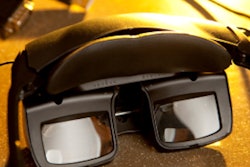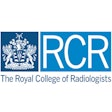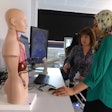
When patients are stressed and anxious over their MRI exams, it affects their experience during the scan and potentially even the imaging workflow, according to research published on 4 February in the Journal of the American College of Radiology.
In a retrospective study involving a team of researchers led by Janika Madl of Friedrich-Alexander-University Erlangen Nuremberg in Erlangen, Germany, and Siemens Healthineers gathered both physiological and psychological information in nearly 100 patients before and after their MRI exams. They found that patients who reported stress anxiety were significantly more likely to need a scan to be repeated and to have a longer exam time.
"Stress and anxiety in patients, in turn, may impact the clinical workflow," the authors wrote. "Therefore, these factors should be considered in the medical treatment to provide both a positive patient experience and smooth clinical workflows."
MRI exams can elicit stress and anxiety in patients, adversely affecting patient experience and potentially providing negative outcomes for healthcare providers, the researchers noted. In their study, they assessed the psychological and physiological response in 96 patients via questionnaires and by collecting salivary alpha amylase and cortisol data before and after receiving MRI exams. Furthermore, the researchers also utilized questionnaires to gather data on potentially influencing factors and clinical workflow outcomes.
Most of the patients in the study tolerated their MRI exam well, but about one-third experienced moderate to severe anxiety. What's more, two patients even chose to prematurely end their scan.
Overall, the researchers found that all psychological measures improved from before the MRI to after the exam (p < 0.001). However, not all psychological stress markers improved (p > 0.258). Although the psychological response also correlated with cortisol levels, it did not correlate with salivary alpha amylase.
"A worse psychological state was related to a stronger response of cortisol, but not [salivary alpha-amylase], suggesting that physiological stress in patients is induced by experiences of uncontrollability and uncertainty rather than the physical characteristics of the examination," the authors wrote.
The nature of previous MRI experiences was particularly predictive of the patients' reactions, according to the researchers. Those who had worse experiences in the past also showed higher and increasing levels of the psychological measures and cortisol.
"... our results suggest that especially positive previous experiences might operate as a buffering factor, and women undergoing breast examinations might be at a particularly high risk for developing MRI-related stress and a negative psychological response," the authors wrote.
As for the impact on MRI workflow, patient stress and anxiety were found to significantly predict the probability of scan repetitions (Nagelkerke's R2 = 0.31, p = 0.011) and the length of scan (adjusted R2 = 0.22, p < 0.001).
Other studies should now seek to build upon this knowledge to improve patient experience and ensure smooth clinical workflows, the team explained.
"The variety of influencing factors suggests that anxious patients differ in their prerequisites and therefore their needs," they pointed out. "Future efforts should consider these to provide tailored health care."















